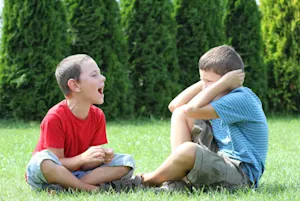What Makes This Word Tick
"Anime" might sound niche, but it's simply shorthand for Japanese animation. These aren't your classic Sunday morning cartoons; instead, they span a wide range of genres and styles, from action-packed adventures to slice-of-life tales with deeply introspective themes. Each anime series or movie offers unique art, often with expressive characters and epic storytelling.
If Anime Were a Person…
Imagine Anime as a vibrant, enthusiastic artist with a flair for the dramatic. Always dressed in a colorful, eye-catching outfit, this character loves storytelling, is passionate about life's little details, and has a knack for turning any mundane event into a captivating tale. They're the kind of person who can switch from heartwarming nostalgia to intense action at the drop of a hat.
How This Word Has Changed Over Time
Originally used in Japan to describe any kind of animation, "anime" has expanded in global pop culture to specifically refer to Japanese animation. Since its inception, anime has grown from local entertainment into a worldwide phenomenon, with millions of fans consuming series, attending conventions, and discussing anime online.
Old Sayings and Proverbs That Use Anime
While there aren't ancient proverbs featuring "anime," fans have created their own sayings inspired by beloved series. For instance, "Believe in the you that believes in yourself" from the anime "Gurren Lagann" has taken on a life of its own as a motivational motto.
Surprising Facts About Anime
You might be amazed to know that one of the longest-running animated series comes from the anime world: "Sazae-san" has been broadcasting since 1969! Another fun fact: Studio Ghibli's films, like "Spirited Away," have received international acclaim and even earned Academy Awards.
Out and About With This Word
Anime isn't just about TV shows. If you stroll through Japan—or even a local bookstore in your city—you might find manga, the comic book counterpart to anime, which often serves as source material for these vibrant animations. People attending anime conventions are likely to be dressed as their favorite characters, known as cosplay.
Pop Culture Moments Where Anime Was Used
Anime's influence in Western media is undeniable. From Quentin Tarantino's nod to the style in "Kill Bill" to Netflix's plethora of anime offerings, this Japanese import has firmly planted itself in pop culture's DNA. Even popular shows like "The Simpsons" have dabbled in anime-themed episodes.
The Word in Literature
While literary fiction might not explicitly feature "anime," manga collections and graphic novels have made a significant mark. These works are revered for their eclectic art styles and intricate storylines, sometimes being adapted into anime series themselves.
Moments in History with Anime
Remember the 1988 film "Akira"? Upon its release, it didn't just shape science fiction but also piqued international interest in anime. That era was a watershed moment, where Western audiences began to take Japanese animation seriously as both art and storytelling.
This Word Around the World
Outside of Japan, "anime" can mean different things. In France, it's called "dessin animé," while in Germany, anime as a genre has a substantial fanbase with its own conventions. Although it's universally adored, the style and themes of anime can be adapted to suit local tastes, making it a global yet culturally versatile medium.
Where Does It Come From?
The word "anime" comes from the English word "animation." However, in Japan, the term applies to all animation, while globally, it specifies Japanese-produced works. It's a linguistic round-trip, exemplifying how language evolves through cultural exchanges.
How People Misuse This Word
Some people might use "anime" to describe all forms of animated content, but it's important to recall that within its community, "anime" denotes works originating from Japan, rich with specific styles and themes that set them apart from other animations.
Words It’s Often Confused With
Manga: Often confused because manga is the print counterpart, typically comic books or graphic novels that anime is based on.
Cartoon: Some use interchangeably with anime, but cartoons are usually Western animations with different artistic and thematic approaches.
Cosplay: Though related to anime culture, cosplay is about dressing up as characters from anime, movies, or games.
Additional Synonyms and Antonyms
Synonyms: Animated series, Japanese animation, animated film.
Antonyms: Live-action movie, reality TV.
Want to Try It Out in a Sentence?
After watching anime for the first time, she found herself swept into a world where every story was more captivating than the last, blending vivid art with unforgettable narratives.
















